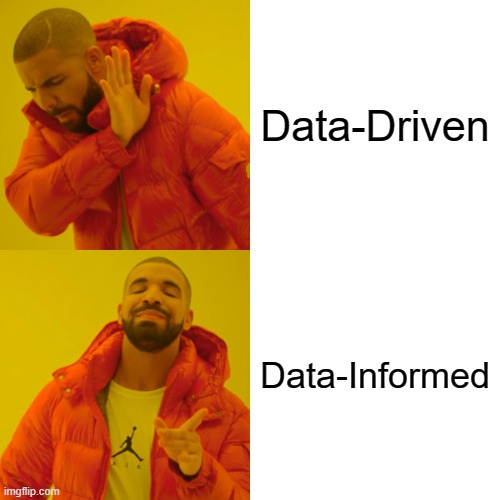5+ years later, software vendors and consultants are still advertising the importance of being data-driven. It’s good for them to sell software and services, but it’s not at all what you need.

(* Last week we tackled digital transformation and why that trend isn’t really about “digital” and it isn’t even about “transformation”.)
The Problematic Definition
Or, at least, the definition that highlights the problem with trying to be data-driven in business:
[Being data-driven means] that progress in an activity is compelled by data, rather than by intuition or by personal experience.
Wikipedia
This definition flows naturally from the phrase “data-driven”, this is how being data-driven is promoted as part of a “digital transformation, and it encourages a return to the old thinking of the early 20th Century’s “scientific management” approach to business operations.
Which is no good for the 21st Century. Which was never really good for human systems; for complex adaptive systems.
The market is a complex adaptive system. Each business is a complex adaptive system. The teams within a business are complex adaptive systems. The relationship with a single customer is a complex adaptive system.
Data-Informed
For over 5-years I have been replacing “driven” with “informed” whenever it was within my power to do so. “Data-informed” works in any context where someone’s used “data-driven”, and while it is just a one word change, that change represents a whole different path of development for the organization.
“Data-informed” has three key differences/advantages over “data-driven”, it:
- Presumes that there is a human being informed and ultimately responsible for action
- Implies and recognizes that there are other inputs to good decision making, e.g. logic and reason, experience, and beliefs about the future
- Makes data a peer to those other inputs, and so encourages the questioning and challenging of both the data and those other inputs
A data-informed company will CRUSH any competitor striving to be data-driven.

